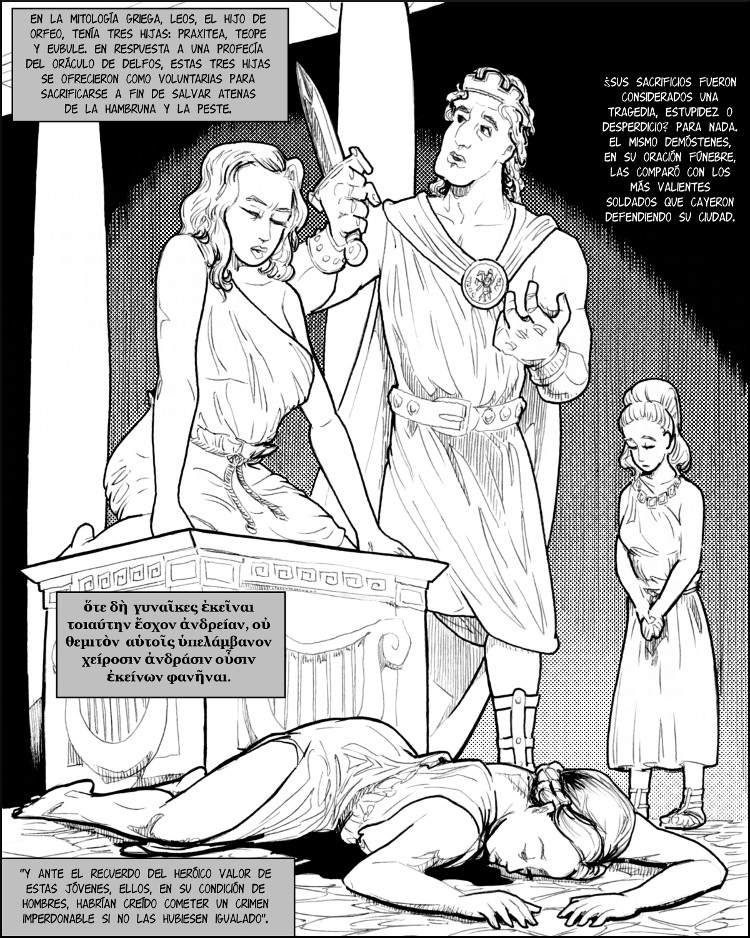
This work is licensed under a Creative Commons Attribution-NonCommercial-ShareAlike 4.0 International License.
PAGE 83 (Single panel page)
Single panel: A representation of Leos sacrificing his three daughters Praxithea, Theope, and Eubule. There are a number of art-historical views of what human sacrifices might have looked like in Archaic Greece and mostly this will be left to the discretion of the artist, with the recommendation that he image search some of the more famous Greek maiden sacrifices, such as those of Iphigenia or Polyxena, and extrapolate from there. Perhaps Praxithea can be lying already sacrificed at her father’s feet, Theope can be under the knife, and Eubule can be patiently waiting her turn. The four captions can be at the corners of the illustration, or otherwise arranged as seems reasonable.
CAPTION – UU Minister speaking (1): In Greek legend, Leos, the son of Orpheus, had three daughters: Praxithea, Theope, and Eubule. In response to a prophecy from the Oracle at Delphi, these three daughters volunteered themselves for sacrifice to save Athens from famine and plague.
Translation (1): En la mitología griega, Leos, el hijo de Orfeo, tenía tres hijas: Praxitea, Teope y Eubule. En respuesta a una profecía del Oráculo de Delfos, estas tres hijas se ofrecieron como voluntarias para sacrificarse a fin de salvar Atenas de la hambruna y la peste.
CAPTION – UU Minister speaking (2): Were their sacrifices regarded as tragedy, stupidity, or waste? Far from it. Demosthenes himself, in his funeral oration, compared them to the bravest of soldiers who fell defending their city.
Translation (2): ¿Sus sacrificios fueron considerados una tragedia, estupidez o desperdicio? Para nada. El mismo Demóstenes, en su oración fúnebre, las comparó con los más valientes soldados que cayeron defendiendo su ciudad.
CAPTION – UU Minister quoting Demosthenes (3): ὅτε δὴ γυναῖκες ἐκεῖναι τοιαύτην ἔσχον ἀνδρείαν, οὐ θεμιτὸν αὑτοῖς ὑπελάμβανον χείροσιν ἀνδράσιν οὖσιν ἐκείνων φανῆναι.
Comment (3): Do not attempt to translate this passage in Greek. It’s translated into English at (4) below, and you can translate it from there into your target language.
CAPTION – UU – Minister translating (4): “When, therefore, such courage was displayed by those women, they looked upon it as a heinous thing if they, being men, should have proved to possess less of manhood.”
Translation (4): “Y ante el recuerdo del heróico valor de estas jóvenes, ellos, en su condición de hombres, habrían creído cometer un crimen imperdonable si no las hubiesen igualado”.
![]()
![]()
![]() Carnada (Español/Versión de página larga)
Carnada (Español/Versión de página larga)
Carnada (Español/Versión deslizante)

